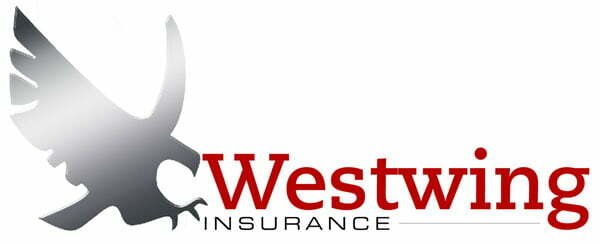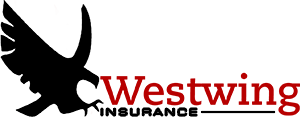
Decoding Insurance: What does insurance mean, the main types of policy, from Auto Insurance to Home Insurance
Insurance plays a crucial role in our lives. It provides financial protection in case of unexpected events. However, navigating through the complex world of insurance policies can be overwhelming. To help you understand the basics, let’s decode the main types of insurance policies. Let’s dive deeper into how they work and the benefits they offer.
What are the main types of insurance policies?
There are various types of insurance policies available. Each is designed to cater to different needs.Auto Insurance
Auto insurance is a type of insurance policy that provides coverage for vehicles. It covers them against financial loss in case of accidents, theft, or damage. It is required by law in most countries and can provide peace of mind and financial protection. Car insurance policies typically include liability coverage. It pays for damages caused to other parties. It also covers medical expenses and property damage.
Home Insurance
Home insurance is also known as homeowner insurance. It is a type of insurance policy that protects homeowners against financial loss in case of damage to their property. It provides coverage for the structure of the house and personal belongings. It also offers liability protection in case someone gets injured on the property. Home insurance policies can also cover additional structures on the property, such as sheds or garages.
Life Insurance Policies
Life insurance policies offer financial protection to beneficiaries if the insured person dies. Life insurance comes in different types. They are term life insurance and whole life insurance. Term life insurance provides coverage for a specific period. Whole life insurance offers lifelong coverage and also has a cash value component.
How does insurance work?
Insurance is a financial tool used to manage risk. When you buy insurance, you pay a premium to an insurance company in exchange for protection against financial losses related to unforeseen events, like accidents, theft, or natural disasters. The concept is based on the pooling of risks, where many individuals pay into a fund. This fund is then used to cover the losses of those who encounter the insured events.
There are various types of insurance, including health, life, auto, and homeowners insurance, each catering to specific risks. For instance, health insurance covers medical expenses, while auto insurance covers damages from car accidents. Insurance policies are legal contracts detailing the terms under which the insurance company will pay out claims. Premiums are determined based on several factors, including the level of risk, the type of coverage, and the individual’s history. By transferring the financial burden of a loss to the insurer, individuals and businesses can protect themselves against potentially devastating financial damage.
Understanding Insurance Coverage
Insurance coverage refers to the protection provided by an insurance policy. It outlines the risks and events that the policy covers. For example, an auto insurance policy may cover damages caused by accidents or theft. It is crucial to review the coverage details carefully. Ensure that your policy meets your specific needs.
Insurance Premiums and Deductibles
Insurance premiums are the amount you must pay periodically to maintain your coverage. Various factors determine the premium amount. Some include the type of policy, the insured’s risk profile, and the coverage limits. The insured must pay deductibles before the insurance company pays for covered losses. They are out-of-pocket expenses.
Liability in Insurance
Liability insurance protects policyholders against claims made by others. They are especially due to their actions or negligence. If the policyholder causes harm to someone or their property, it helps cover legal costs and damages. Having liability insurance is crucial for people and businesses. It protects their finances in legal disputes.
What are the benefits of having insurance?
Having insurance offers several advantages and peace of mind in uncertain times. Whether it’s health, life, auto, or home insurance, each policy serves as a safeguard against the unpredictable nature of life, covering potential financial losses due to accidents, health issues, or other unforeseen events. This protection is invaluable in mitigating the stress and financial strain that can come with needing to pay.
Financial Protection in Case of Loss
One of the primary benefits of insurance is its financial protection in case of a loss. Whether it’s a car accident, a fire at your home, or a medical emergency, insurance can help cover the costs. It prevents financial strain.
Coverage for Medical Expenses
Health insurance policies play a vital role in covering medical expenses. They help ease the burden of costly treatments, doctor visits, and prescription medications. It ensures that you receive the necessary healthcare without facing exorbitant bills.
Peace of Mind
Knowing that you have insurance coverage offers peace of mind. It allows you to focus on the present without. No need to constantly worry about potential risks and financial implications.
How to buy insurance?
Buying insurance involves a few crucial steps. Ensure the right coverage and a reliable insuran First, it’s important to assess your specific needs and determine the type of coverage that best suits those needs. This may include considering factors such as your family size, assets, and financial situation. Next, it’s essential to research and find a reputable insurance provider with a strong track record of customer satisfaction and reliability.
Choosing a Reliable Insurance Provider
When you buy insurance, it’s important to choose a good company. Settle for those with a history of helping customers and processing claims quickly. To find the right insurance company, research, read reviews, and ask for recommendations.
Understanding Policy Terms and Coverage
Before buying insurance, make sure you read and understand the policy terms and coverage. Pay close attention to exclusions, limitations, and the process for filing a claim. Get a policy that meets your requirements.
Purchasing an Insurance Policy
You can buy the insurance after choosing an insurance company and reading the policy. Typically, you need to give information, choose coverage, and pay premiums.
What is home insurance and how does it work?
Home insurance protects homeowners from financial losses caused by different risks and damages. Home insurance provides a financial safety net for homeowners in the event of unexpected damages or perils that could result in financial loss. This type of insurance typically covers the structure of the home itself, as well as personal belongings inside the home. It can also provide liability coverage in case someone is injured on the property.
Types of Home Insurance Policies
There are different types of home insurance policies to cater to varying needs. Certain policies cover both the house and its contents. Others only cover certain risks mentioned in the policy.
Understanding Policy Limits and Coverage
Policy limits are the most that the insurance company will pay for covered losses. To make sure you have enough coverage, understand the policy limits. Make sure you know the risks and events covered by your home insurance policy.
Working with an Insurance Agent
An insurance agent can help you understand your home insurance. They can help compare coverage options and choose the right policy. They can guide you through the process of purchasing a policy. Their work is to provide expert advice on protecting your home and valuables.
What is auto insurance and why is it important?
Auto insurance protects your vehicle and finances in case of accidents or theft. In addition to providing coverage for damage to your vehicle in the event of an accident, auto insurance also provides financial protection in the case of theft, vandalism, or natural disasters. Without auto insurance, you could be left to cover the cost of repairs or replacement out of pocket, which can be a significant financial burden.
Types of Auto Insurance Coverage
Auto insurance policies provide different types of coverage. Liability coverage pays for damages to others. Collision coverage covers damages to your vehicle in accidents. Comprehensive coverage protects against theft or natural disasters.
Determining the Right Insurance Plan
When choosing car insurance, consider how you drive, your car’s value, and your budget. Working with an insurance agent can help you assess your needs. They help determine appropriate coverage levels for your situation.
Filing a Claim and Dealing with Insurance Companies
If you have an accident or lose something your auto insurance covers, you must file a claim. To make a claim, you need to share what happened, work with adjusters, and give the required documents. It’s important to understand the steps involved in filing a claim to ensure a smooth process.
Frequently Asked Questions
Q: What is insurance?
Insurance is a contract between a person or a company and an insurance provider. The insured pays a premium to get financial protection from certain risks.
Q: What are the main benefits of insurance?
Insurance has many advantages. Mostly protecting you financially from unexpected events and covering medical bills. It also gives peace of mind.
Q: What is a deductible?
A deductible is the money you pay before insurance helps you. It is usually a fixed amount or a percentage of the total claim.
Q: What is car insurance?
Car insurance protects your vehicle from losses and damages and covers liability for accidents.
Q: What is an insurance premium?
An insurance premium is the money you pay for insurance coverage. It is usually paid on a monthly, quarterly, or annual basis.
Q: What is liability in insurance?
Liability in insurance means being legally and financially responsible for injuries, damages, or losses to others. Liability coverage helps protect the insured from paying out of pocket for such claims.
Q: What is a policy term?
A: A policy term refers to the duration for which an insurance policy is in effect. It specifies the length of time the insured individual is covered by the insurance policy.
Q: What is home insurance?
Home insurance is also called homeowner insurance. It protects your home from fire, theft, and natural disasters.
Q: What should I consider when purchasing an insurance policy?
A: When purchasing an insurance policy, you should consider some factors. They are the insurance provider’s coverage, reputation, premium cost, deductibles, and policy terms.
Q: What does an insurance policy cover?
A: An insurance policy covers the specific risks and events mentioned in the policy. It outlines what damages, losses, or liabilities are included. And up to what limit the insurance provider will reimburse the insured individual.
Q: What are the main types of insurance available?
A: There are many types of insurance available. They are life insurance, health insurance, auto insurance, home insurance, and travel insurance. Plus, other general insurance policies that provide coverage for various risks and needs.

